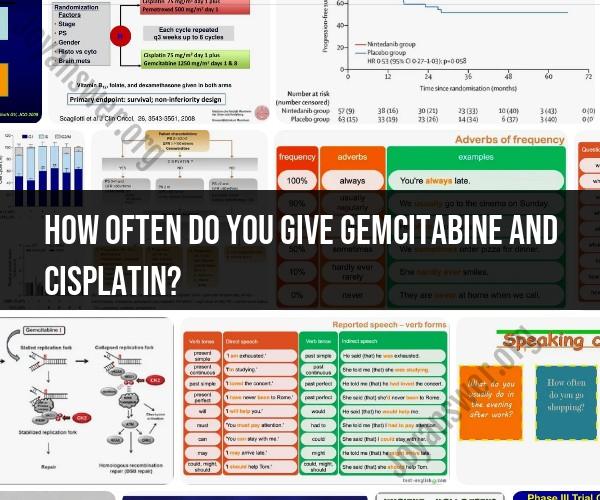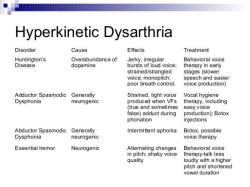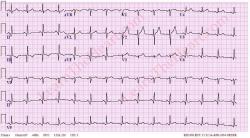How often do you give gemcitabine and cisplatin?
The frequency and dosing of gemcitabine and cisplatin, two chemotherapy drugs, can vary depending on the specific medical condition being treated and the treatment protocol prescribed by a healthcare provider. These drugs are commonly used in the treatment of various cancers, including bladder cancer, lung cancer, and pancreatic cancer.
Typically, the administration of gemcitabine and cisplatin is based on a schedule that may involve cycles of treatment. A common schedule for this combination therapy may look like this:
Treatment Cycle: A treatment cycle can vary in length, but it's often around 21 to 28 days.
Frequency: Gemcitabine is usually administered on specific days within the cycle, often on days 1 and 8 of the cycle. Cisplatin is commonly given on day 1 of the cycle.
Repeats: This treatment cycle is repeated for several cycles, typically for several months. The number of cycles and the overall duration of treatment depend on the type and stage of cancer, the patient's response to treatment, and the treatment plan developed by the healthcare team.
It's essential to note that the precise dosing, frequency, and treatment duration may be adjusted by the oncologist based on the patient's individual circumstances and the specifics of their cancer diagnosis. Additionally, the potential side effects and toxicity of these drugs need to be closely monitored during treatment.
If you or someone you know is undergoing chemotherapy with gemcitabine and cisplatin, it is crucial to have detailed discussions with the healthcare provider and oncologist to understand the treatment plan, potential side effects, and any special considerations relevant to the specific cancer being treated. Patients should also adhere to the treatment schedule and follow the medical team's guidance throughout the course of therapy.
Gemcitabine and Cisplatin: Balancing Cancer Treatment
Gemcitabine and cisplatin are two chemotherapy drugs that are often used in combination to treat a variety of cancers, including bladder cancer, biliary tract cancer, lung cancer, ovarian cancer, and pancreatic cancer. These drugs work by killing cancer cells and preventing them from growing and spreading.
Balancing cancer treatment with gemcitabine and cisplatin is important to minimize side effects and maximize the effectiveness of treatment. The drugs are typically administered in cycles, with each cycle lasting for several weeks. The length of each cycle and the number of cycles needed will vary depending on the type of cancer being treated and the patient's individual response to treatment.
Understanding the Scheduling and Administration of Gemcitabine and Cisplatin
Gemcitabine and cisplatin are typically administered intravenously (through an IV). Gemcitabine is typically given over a period of 30 minutes, while cisplatin is typically given over a period of 1 to 4 hours. The drugs may be given on the same day or on different days.
The scheduling of gemcitabine and cisplatin treatment will depend on the type of cancer being treated and the patient's individual response to treatment. For example, patients with bladder cancer may receive gemcitabine and cisplatin every 3 weeks for 4 to 6 cycles, while patients with pancreatic cancer may receive gemcitabine and cisplatin every 2 weeks for 6 to 12 cycles.
Combating Cancer with Gemcitabine and Cisplatin: Insights and Guidelines
Gemcitabine and cisplatin are powerful chemotherapy drugs that can be effective in combating cancer. However, it is important to be aware of the potential side effects of these drugs. Some common side effects of gemcitabine and cisplatin include:
- Nausea and vomiting
- Diarrhea
- Fatigue
- Hair loss
- Myelosuppression (suppression of bone marrow function)
- Kidney damage
- Neuropathy (nerve damage)
It is important to talk to your doctor about the potential side effects of gemcitabine and cisplatin before starting treatment. Your doctor can help you to manage side effects and develop a treatment plan that is right for you.
Patient Experiences and Advice on Gemcitabine and Cisplatin Therapy
Every patient's experience with gemcitabine and cisplatin therapy will be different. Some patients may experience severe side effects, while others may tolerate the drugs well. It is important to be patient and listen to your body. If you are experiencing any side effects, talk to your doctor.
Here are some tips from patients who have received gemcitabine and cisplatin therapy:
- Stay hydrated by drinking plenty of fluids.
- Eat a healthy diet to maintain your strength.
- Get enough rest.
- Ask for help from family and friends.
- Join a support group for cancer patients.
Support and Hope in the Journey with Gemcitabine and Cisplatin
If you are facing cancer treatment with gemcitabine and cisplatin, it is important to know that you are not alone. There are many people who have been through this journey and come out stronger on the other side.
There are a number of resources available to support you during your treatment. Your doctor can provide you with information about side effects and how to manage them. You can also join a support group for cancer patients to connect with others who are going through the same thing.
Remember, you are not alone. With support and hope, you can get through this journey.













